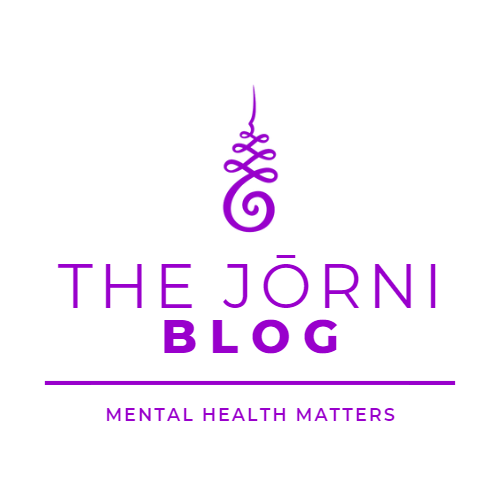Understanding Fertility Struggles
Grief and Loss Surrounding Infertility
According to studies, couples with fertility challenges go through a lot of anxiety and emotional pain. For example, women and couples may feel intense grief and loss when a round of reproductive treatments is unsuccessful.
My podcast episode with Sophie Byfield explores the impact of infertility on women's’ mental health. Her area of expertise is fertility. It wasn't until she went through her own struggle conceiving as a nutritionist and fitness guru that she understood how depressing and isolating this environment is. Since she started her company, Fertility Coach Sophie, she has been assisting women attempting to navigate the world of fertility and supporting healthy bodies to become pregnant.
More and more couples are experiencing infertility, particularly now that many delay parenthood until later in life.
In poorer nations, infertility affects one in four couples. According to some medical professionals and experts, infertility is on the rise, and as more couples explore family-planning options, infertility treatments are becoming more well-known.
“Whatever the struggle, continue the climb. It may be only one step to the summit.”
- Diane Westlake
A great sense of grief is usual when dealing with fertility problems. Grieving is normal if you find that getting pregnant may not be feasible for you or that the likelihood of conceiving naturally is slim.
Fertility and your mental wellbeing
As standard responses to infertility, Harvard Medical School lists "shock, grief, depression, anger, frustration, and a sense of control over one's fate." Mental health issues can still persist after the initial shock and sadness have subsided, according to the MGH Center for Women's Mental Health, when infertile couples experience "anger, despair, anxiety, marital troubles, sexual dysfunction, and social isolation."

But nothing about struggling with infertility is “standard”. If you are struggling with infertility, you may find yourself withdrawing from potentially upsetting social situations. Social media, the Internet, pregnancy announcements, or baby pictures might be too much for you. And even though wanting to isolate yourself can be a normal response, depression and anxiety symptoms may also worsen as a result.
In addition, your relationships may suffer. Friends and family may not understand the gravity of what you are going through. And it might even be hard for you to communicate with your partner about it. You may feel like avoiding friends who are expecting. You might want to avoid spending time with family members who constantly ask about your family plans or give unsolicited pregnancy advice. Maybe you have heard the phrase "just relax, stop trying, and everything will happen" much too frequently, and it was not only insulting but also completely unhelpful.
As you struggle with fertility and navigate fertility treatments, your partner may have been the one person you wanted to turn to, but find yourself unable to connect. If you are struggling as a woman with a male partner, he may simply not understand the feelings you are experiencing.
Troubles with conceiving
You might be worried that because you have trouble conceiving, your partner may leave you. They might decide to leave for someone who can give them a child, and this can leave you terrified. This is a profound fear and many people are unable to share this with their partners. If one partner's coping style is more passive, the other can accuse them of "not caring enough," for instance. Conversely, one partner might call the other out for "overreacting”.

Money problems might also become more prominent as you struggle to fall pregnant. Fertility treatments can be very expensive and financial hardship is common. Co-pays, uninsured fertility testing, treatments, travel to and from reproductive clinics, and missed work due to procedures and appointments could definitely strain your finances.
Most couples won't need IVF procedures, but for those whose only option this becomes, it may result in ongoing financial difficulties. Almost all couples that undergo IVF require financial assistance. And that may result in years of debt and added stress and anxiety. The fact that you have no guarantee whether IVF will even work or not, can weigh heavily on you and your family as well.
Even though there are so many other women out there going through the same thing, most women suffer in silence and isolation. They do not share their fears and emotions with their families or close relatives, taking on the physical and emotional burden alone.
Fertility Coaching
This is where Sophie Byfield can help. As a Fertility Coach, she assists women on their journey to motherhood, whether parenting occurs through unaided conception, assisted reproductive technology, or in certain situations, adoption. There are many different types of health and fertility coaching, each suited to specific problems and niches.
Miscarriages, IVF support, emotional support, endometriosis, infertility/sub-fertility, irregular periods, ovulation, polycystic ovary syndrome (PCOS), gay and trans family building, cancer, and fertility preservation are just a few of the challenges that professional Fertility Coaches can lend support with.

The ability of Fertility Coaches to make people feel more in charge of their physical and mental health has been demonstrated to significantly increase pregnancy rates and decrease rates of anxiety and depression.
As you might expect from a Fertility Coach, their main objective is to help you get as near the ideal menstrual cycle as possible. They can also provide adoption and assisted reproductive technology counseling, depending on what they are certified in.
How Fertility Coaches can help
Fertility Coaches offer advice and resources on the five main components of fertility. These five pillars include nutrition, exercise, stress, supplements, and healing. Online coaching can happen in an on-demand setting, where you receive information, videos, and coaching on these five areas. This approach can give you valuable information on what you need to prepare.

The other way fertility coaches work with clients is one-on-one. This way, you work with your coach directly over several months to address your body and unique challenges. To make you as fertile as possible so you can get pregnant, they will look at your entire life and those five fundamental pillars to see where they can help you make adjustments.
Investing in a Fertility Coach may entirely remove the need for IVF treatment. But, if IVF treatment is still needed, you will be in the best shape for it and increase your chances of it working by having a Fertility Coach who helps you prepare.
The Takeaway
It is normal for you to feel exhausted, distressed, and frustrated as you are struggling with fertility. To ensure you do not suffer alone, please connect with other people in support groups or in your circle of friends. You may be surprised at how many people have been struggling with the same thing. Although you may find it impossible to talk to your partner or family, people who are also struggling with fertility challenges will understand what you are experiencing.

While struggling to conceive, you are more likely to suffer from sadness and anxiety, but you are not alone.
And you do not have to suffer in silence and isolation. Understanding how infertility may affect your mental health and how to receive support is essential. Sometimes people are caught off guard and do not anticipate the weight of their feelings. Having a strong support network, even if it’s online, can be helpful.
You may not be able to fully control the physical effects of infertility, but you can influence how you handle the distress it causes. Choose ideas and actions that increase your control sensation because that impacts how you feel.
Share this journey with your partner and family. But, if that is not an option, working with a Fertility Coach will give you support, advice, and encouragement for what’s ahead.
Sources
Frederiksen, Y., Farver-Vestergaard, I., Skovgard, N. G., Ingerslev, H. J., & Zachariae, R. (2015, January 28). Efficacy of psychosocial interventions for psychological and pregnancy outcomes in infertile women and men: a systematic review and meta-analysis. BMJ Open, 5(1), e006592–e006592. https://doi.org/10.1136/bmjopen-2014-006592
Karimzadeh, M., Salsabili, N., Akbari Asbagh, F., Teymouri, R., Pourmand, G., & Soleimanieh Naeini, T. (2017, March). Psychological disorders among Iranian infertile couples undergoing Assisted Reproductive Technology (ART). Iran J Public Health, 46(3), 333–341. https://pubmed.ncbi.nlm.nih.gov/28435819/
Rooney, K. L., & Domar, A. D. (2018, March 31). The relationship between stress and infertility. Dialogues in Clinical Neuroscience, 20(1), 41–47. https://doi.org/10.31887/dcns.2018.20.1/klrooney
Tucker, P., Beckham, E., & Scarborough, A. (1994, December). Psychiatric specialty clinics: Do they weed out comorbid depression and anxiety? The Journal of Mental Health Administration, 21(1), 100–105. https://doi.org/10.1007/bf02521350
https://thejornipodcast.com/episode-12-the-fertility-journey-with-sophie-byfield

